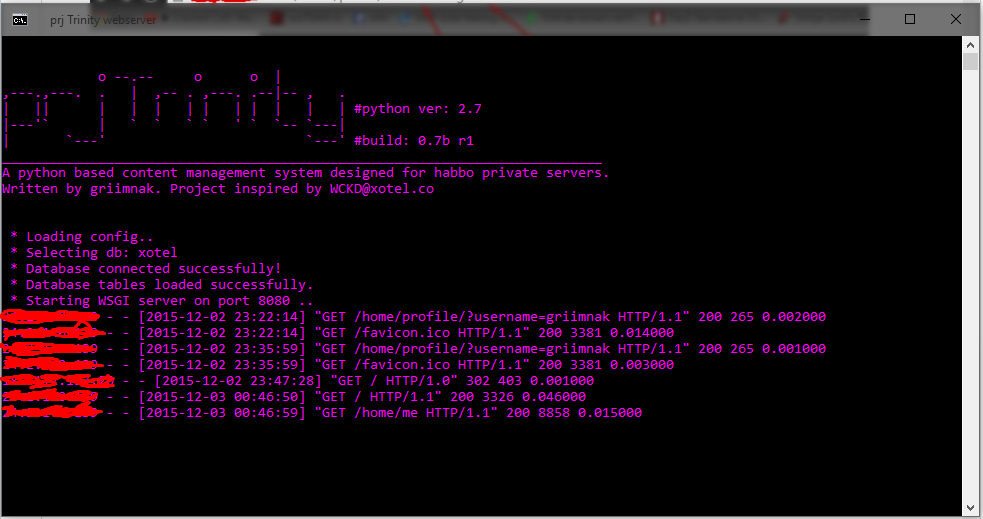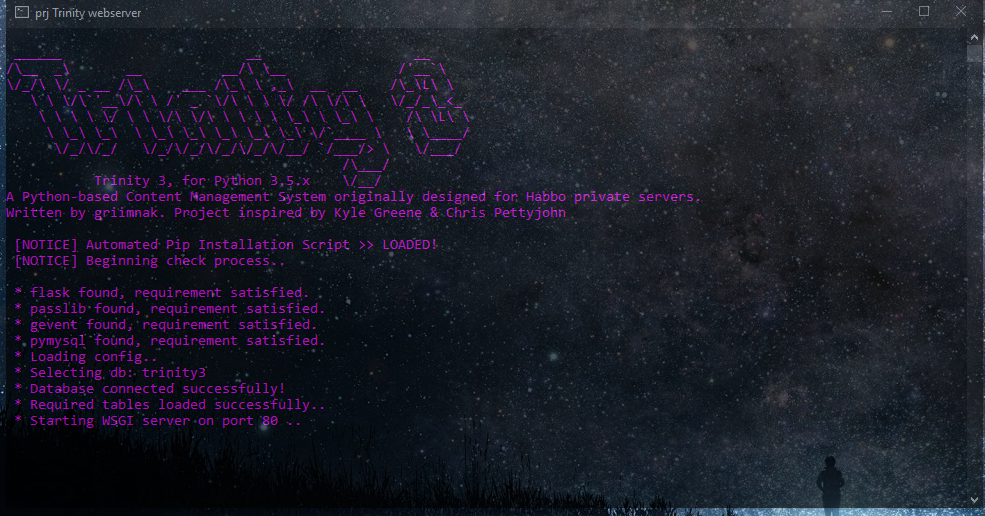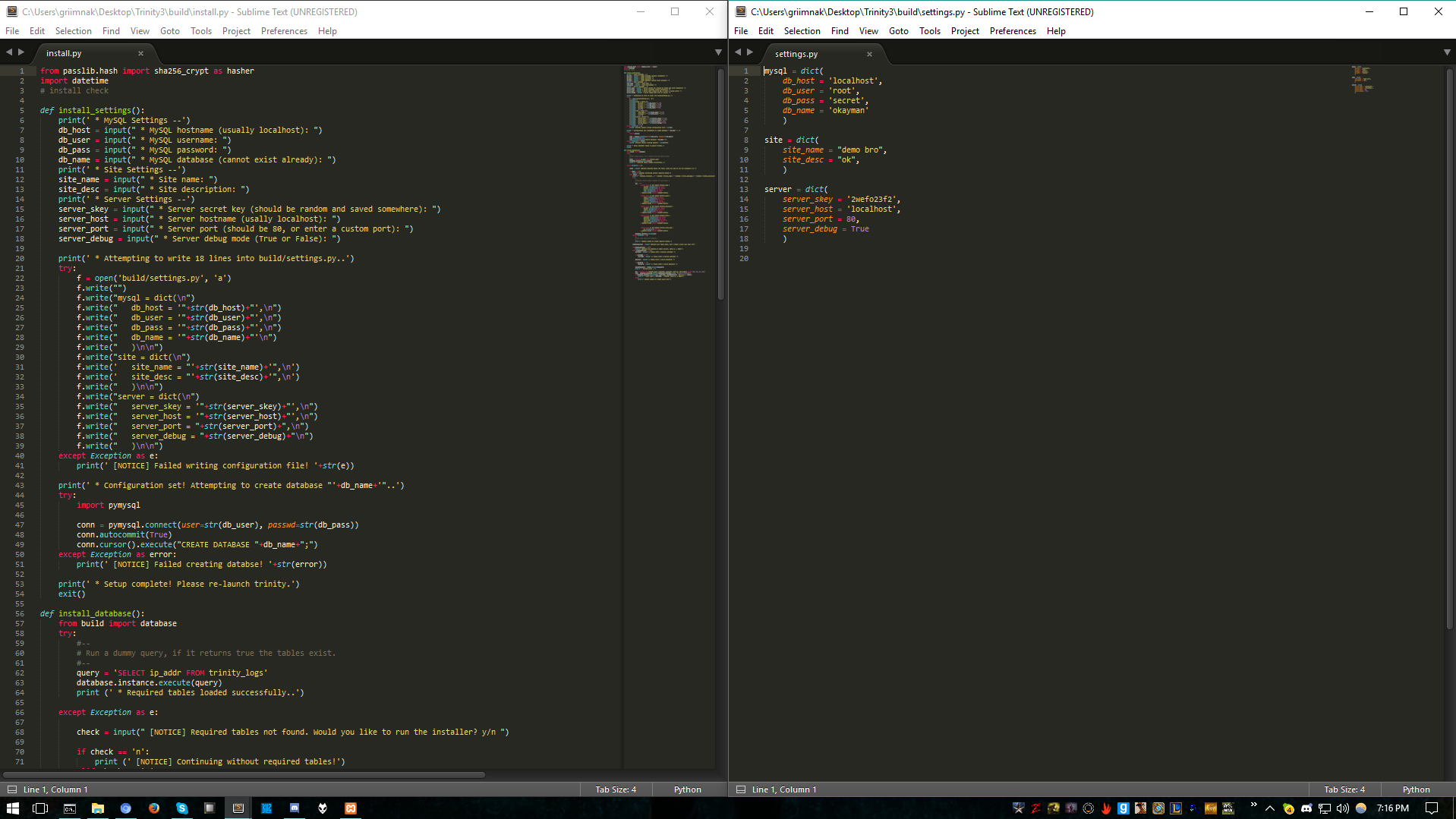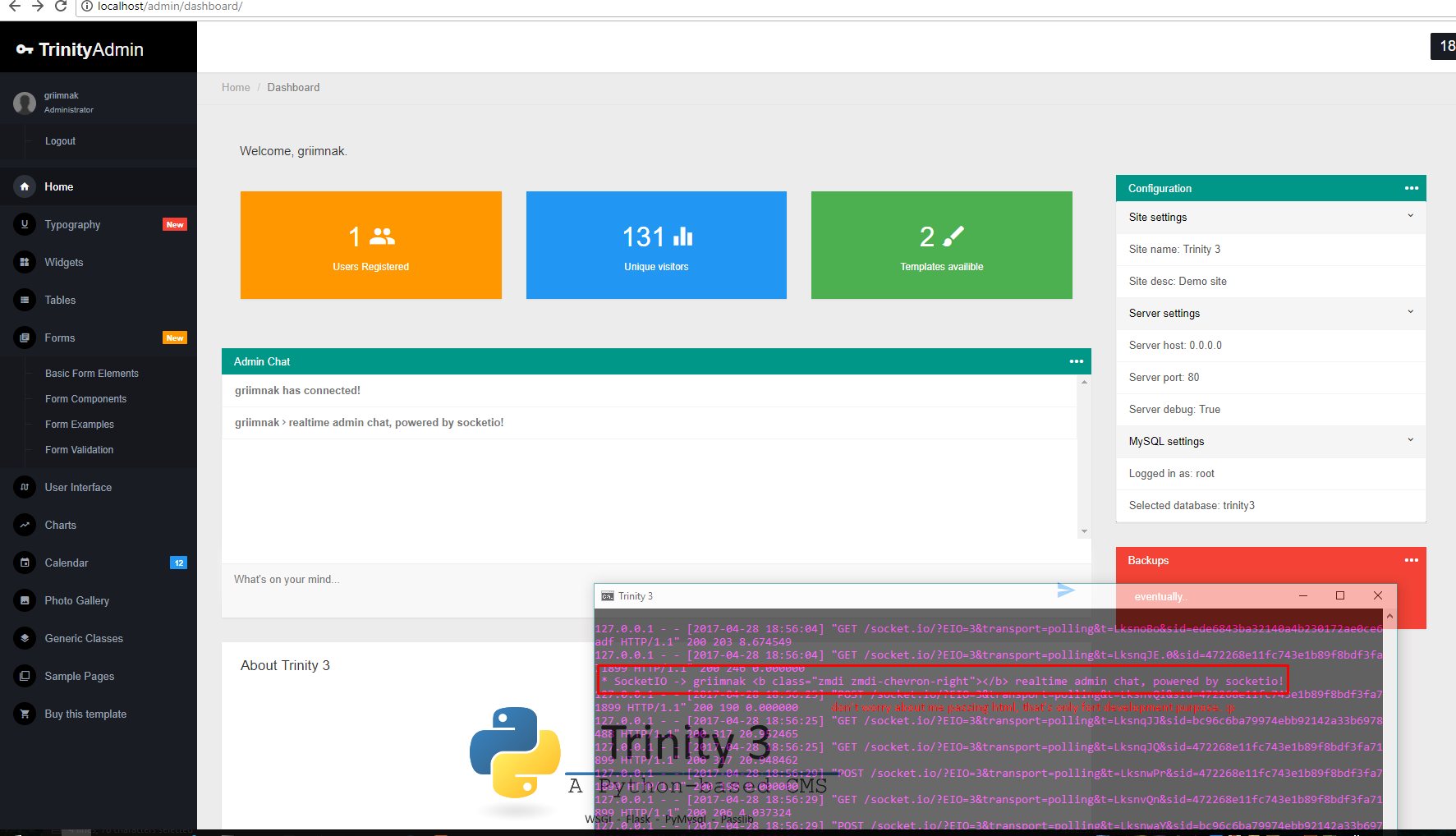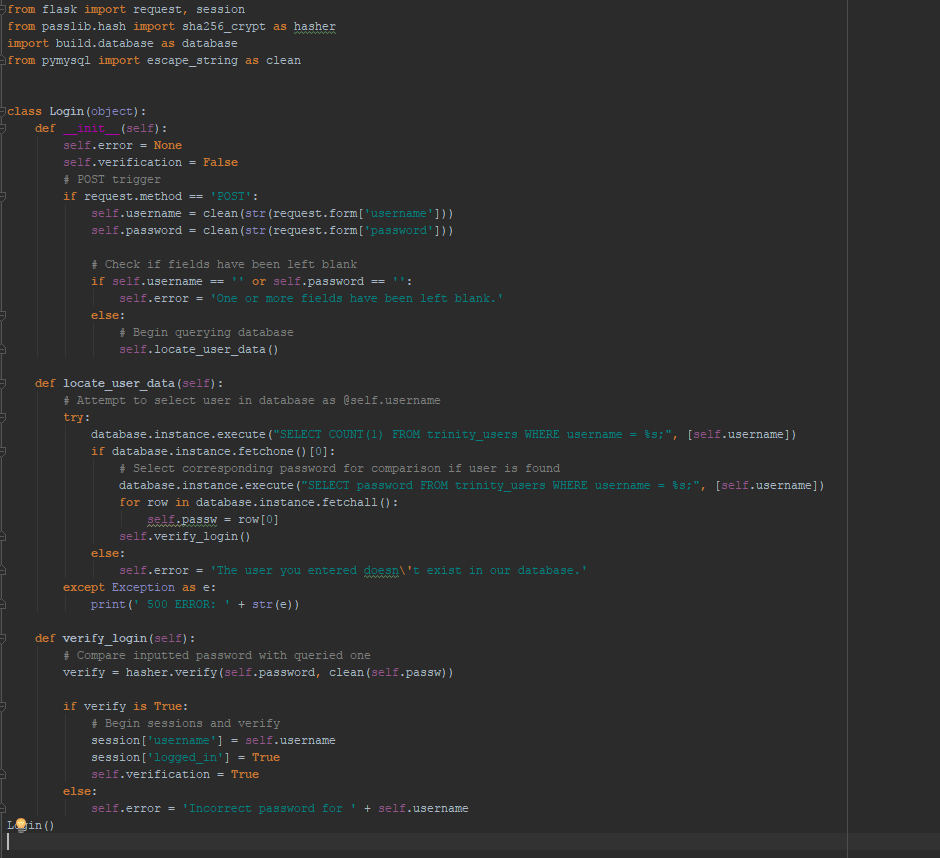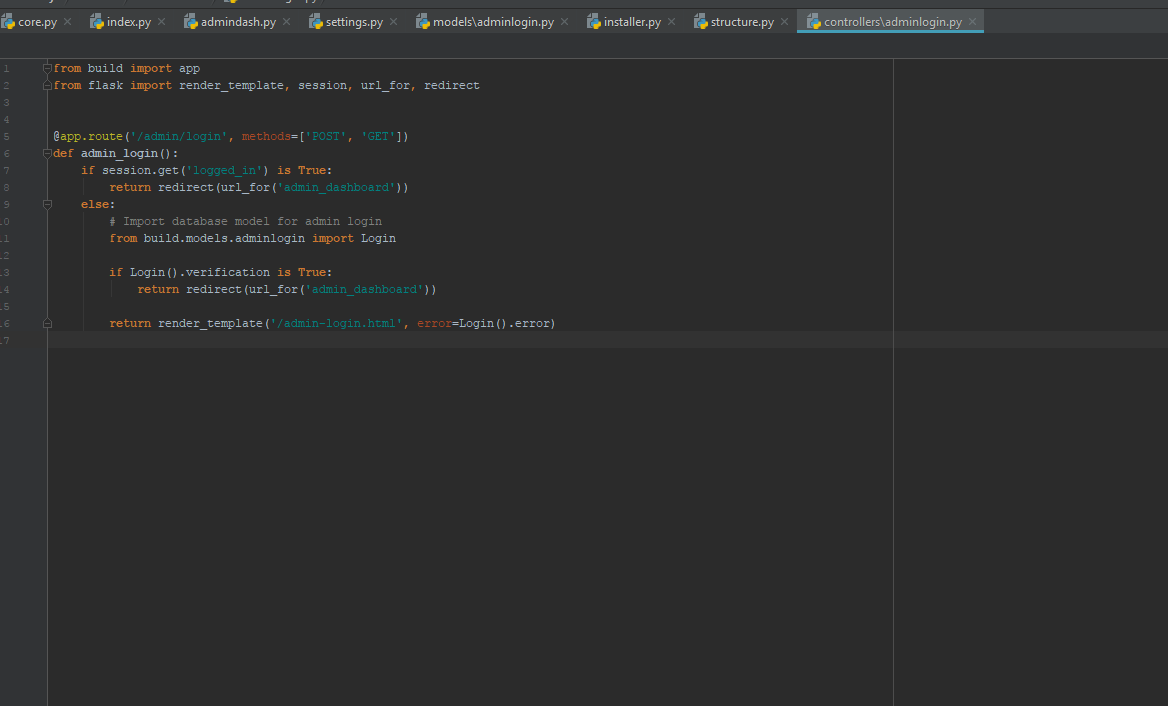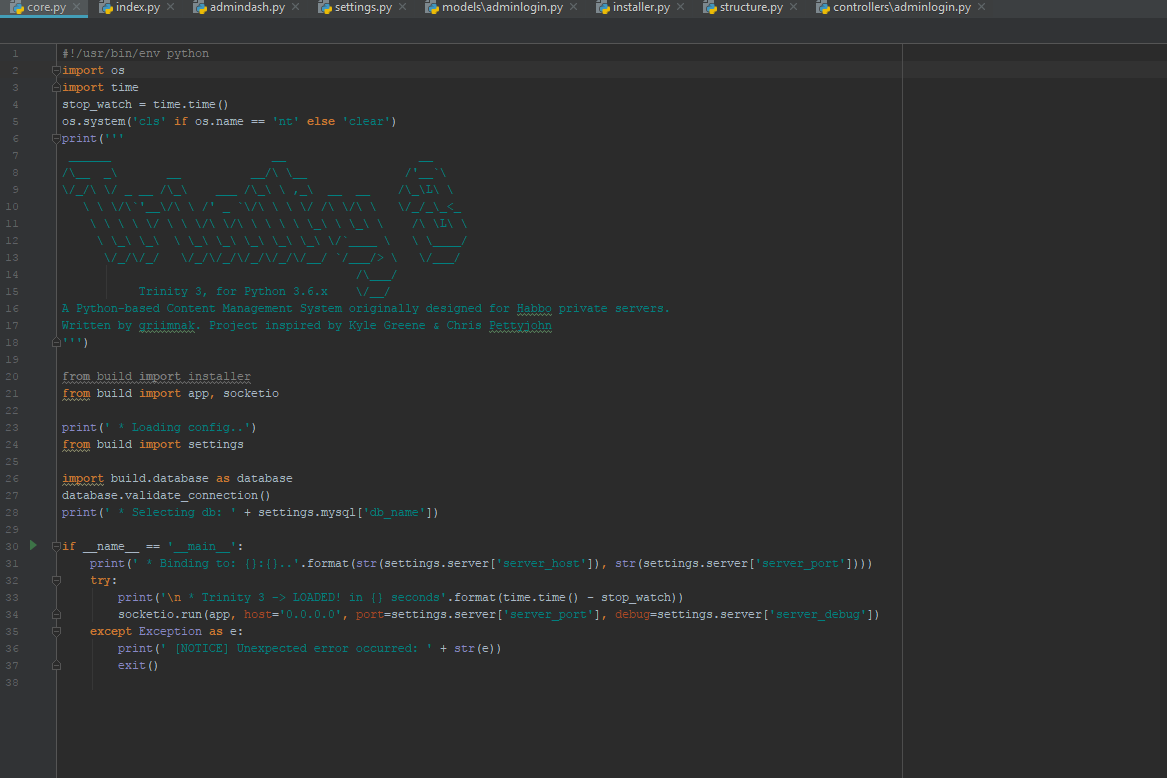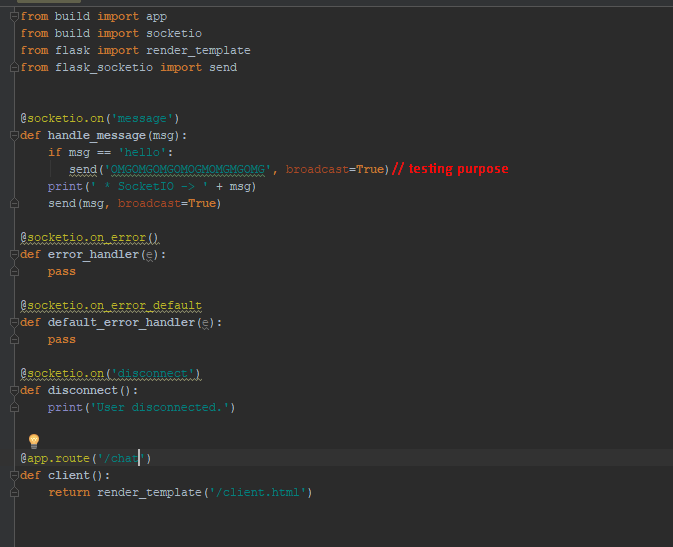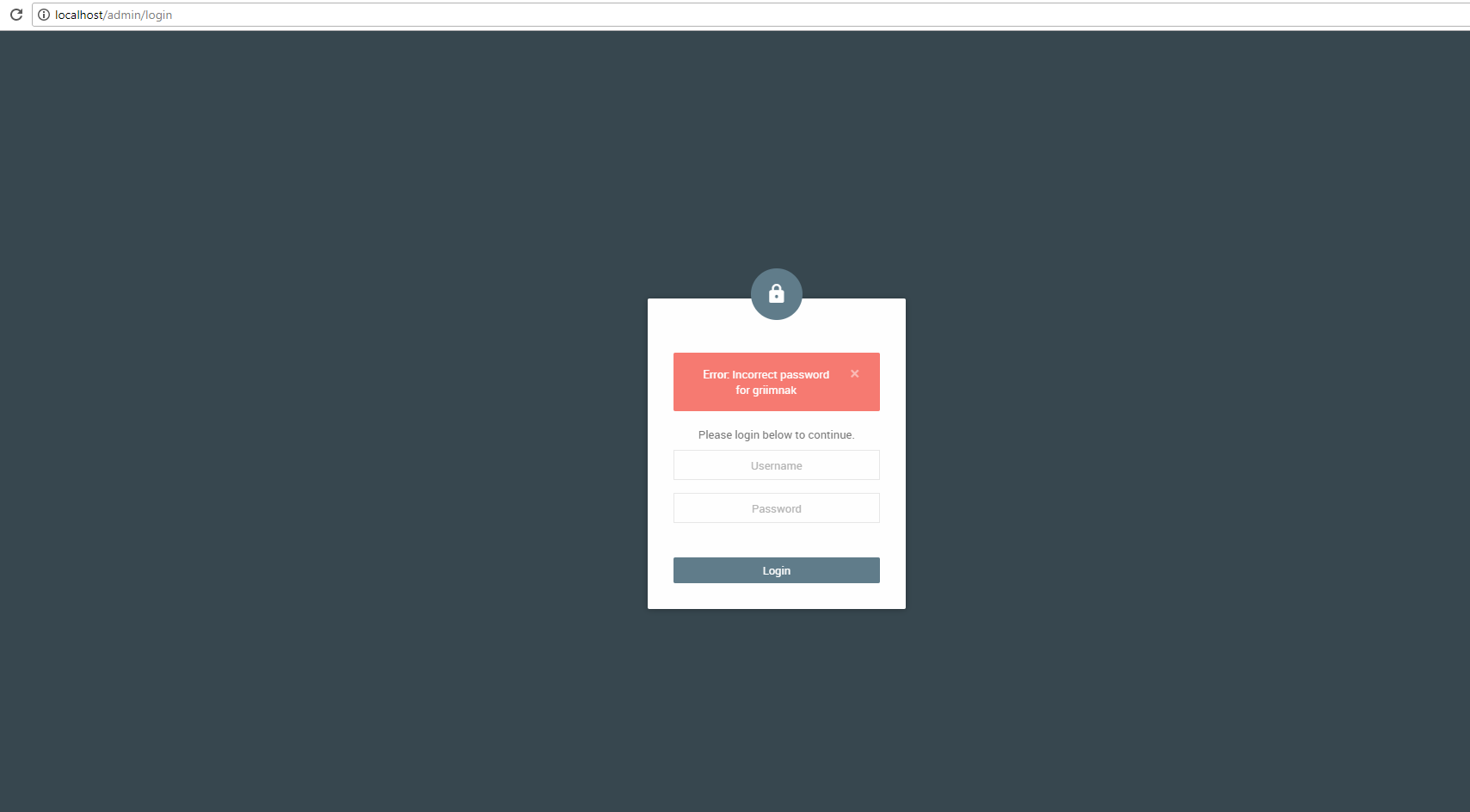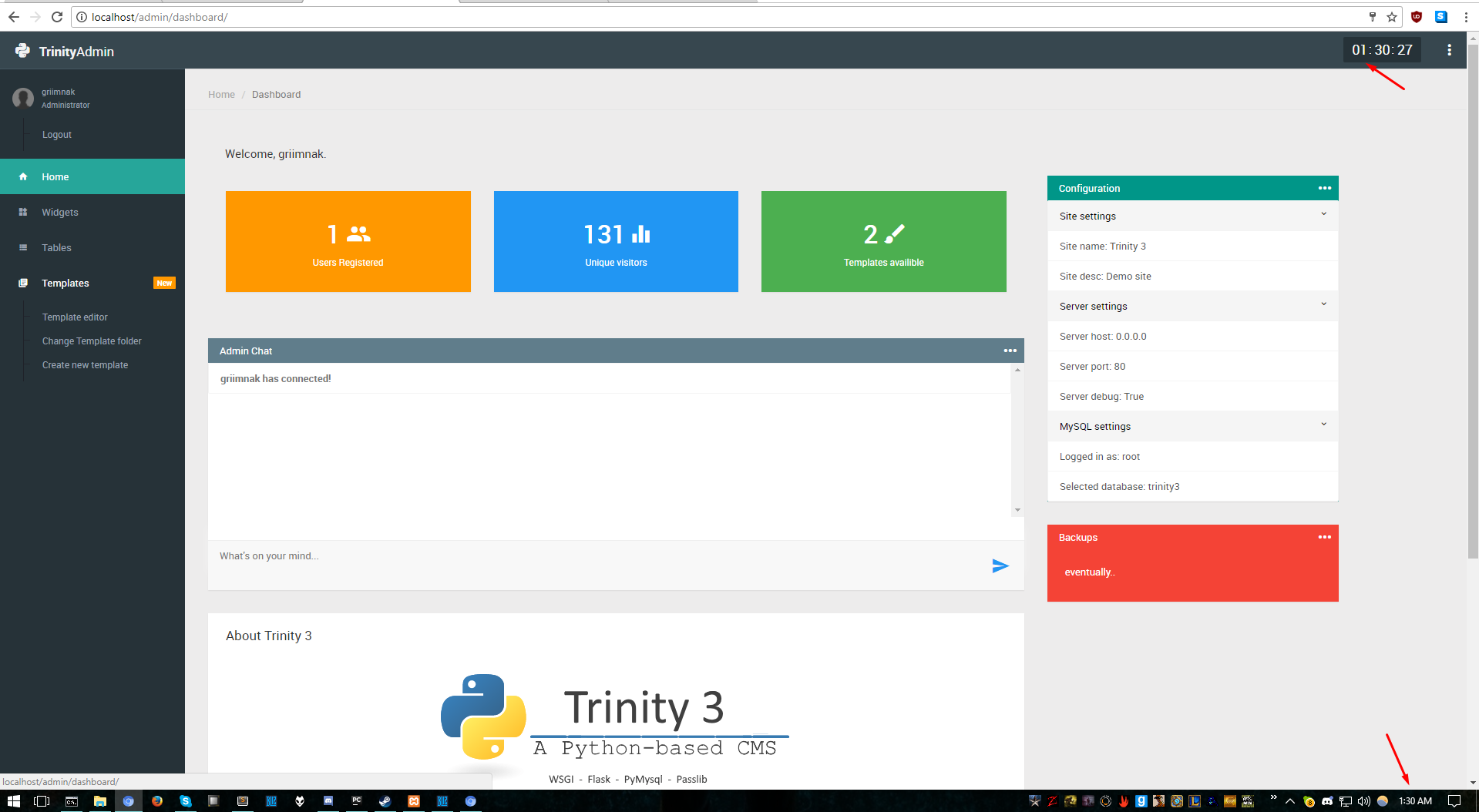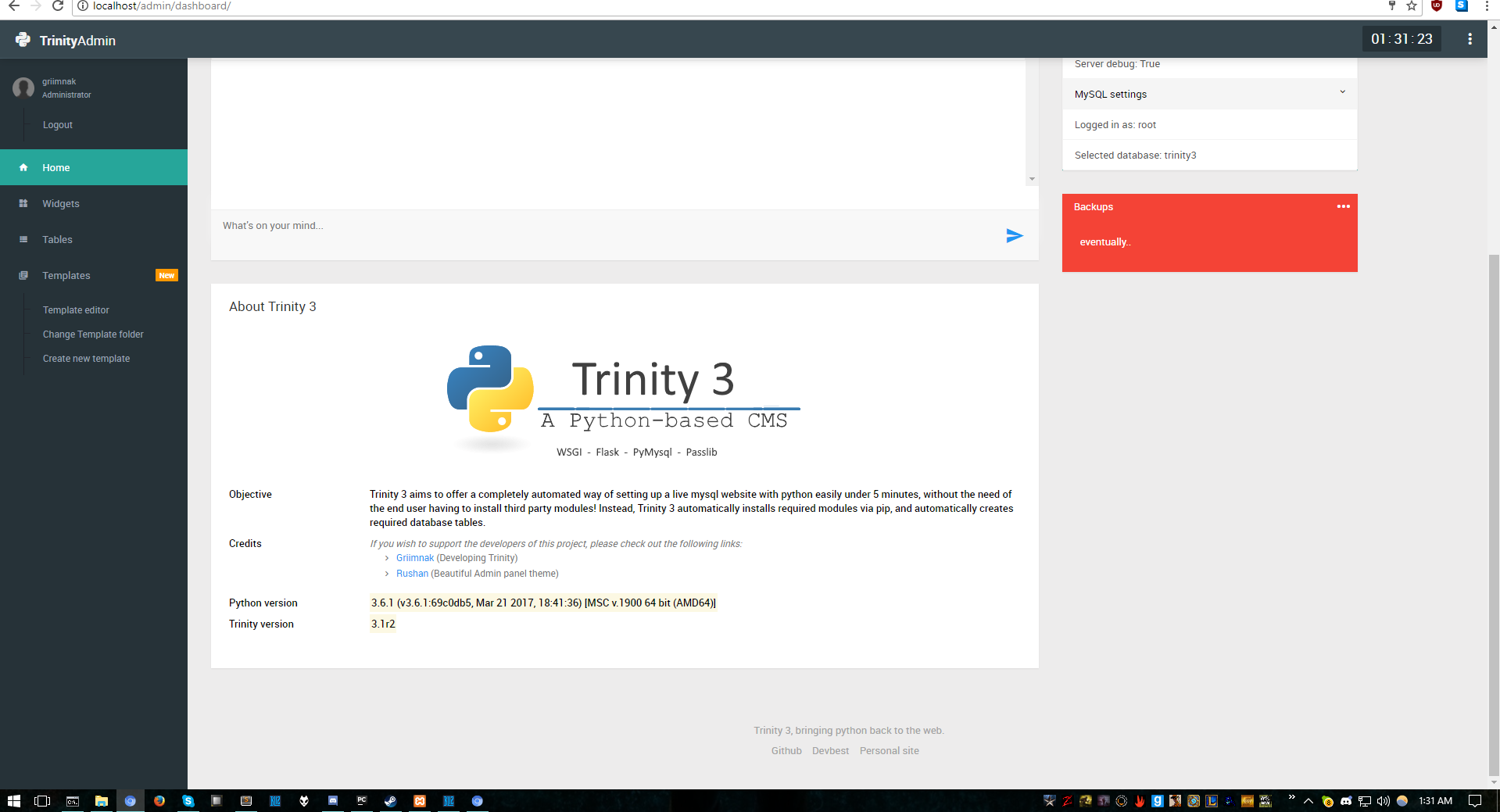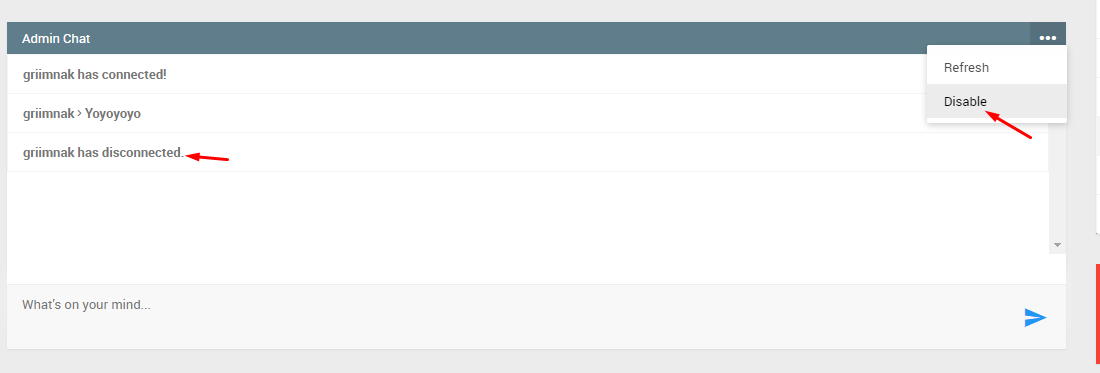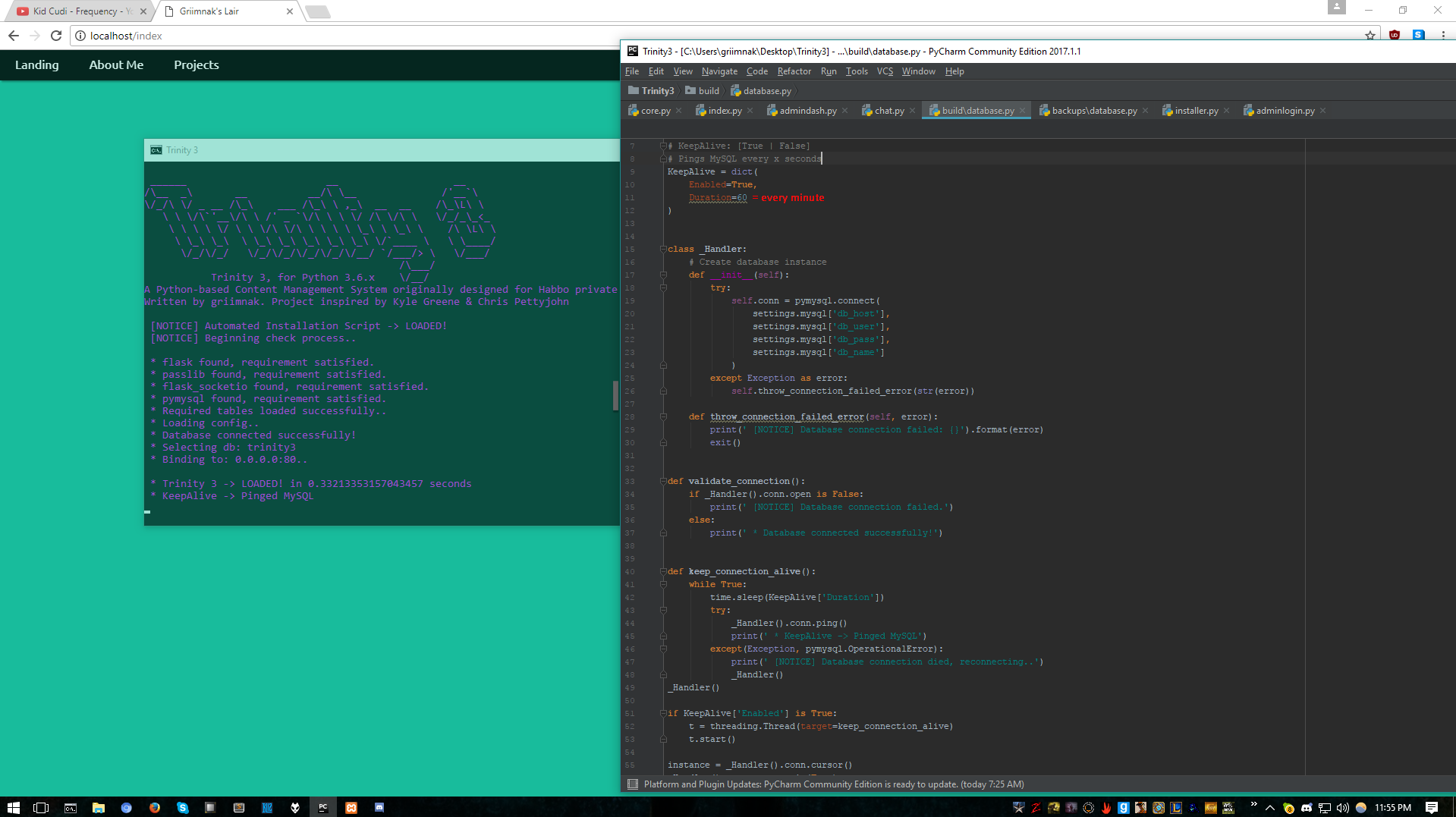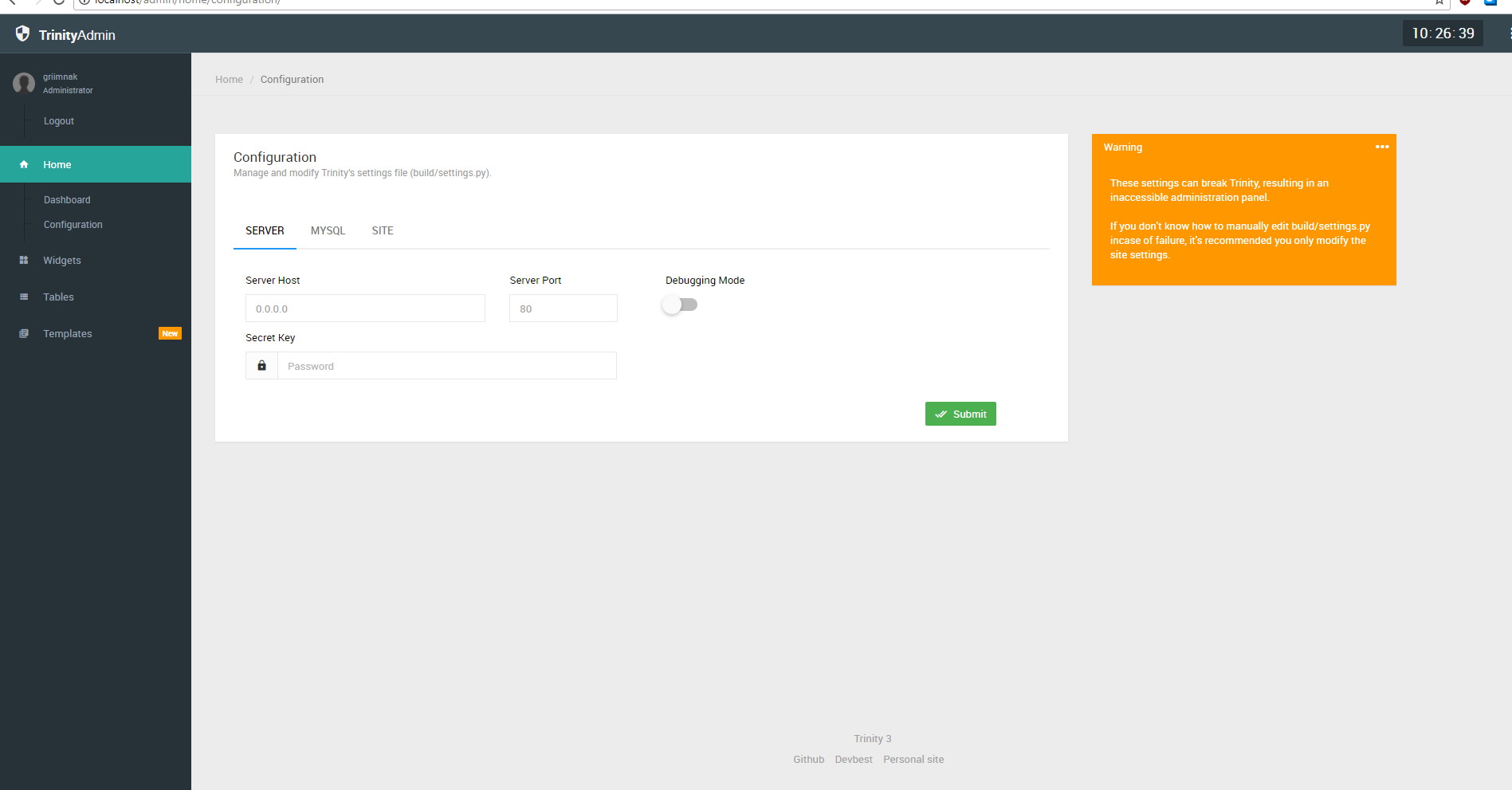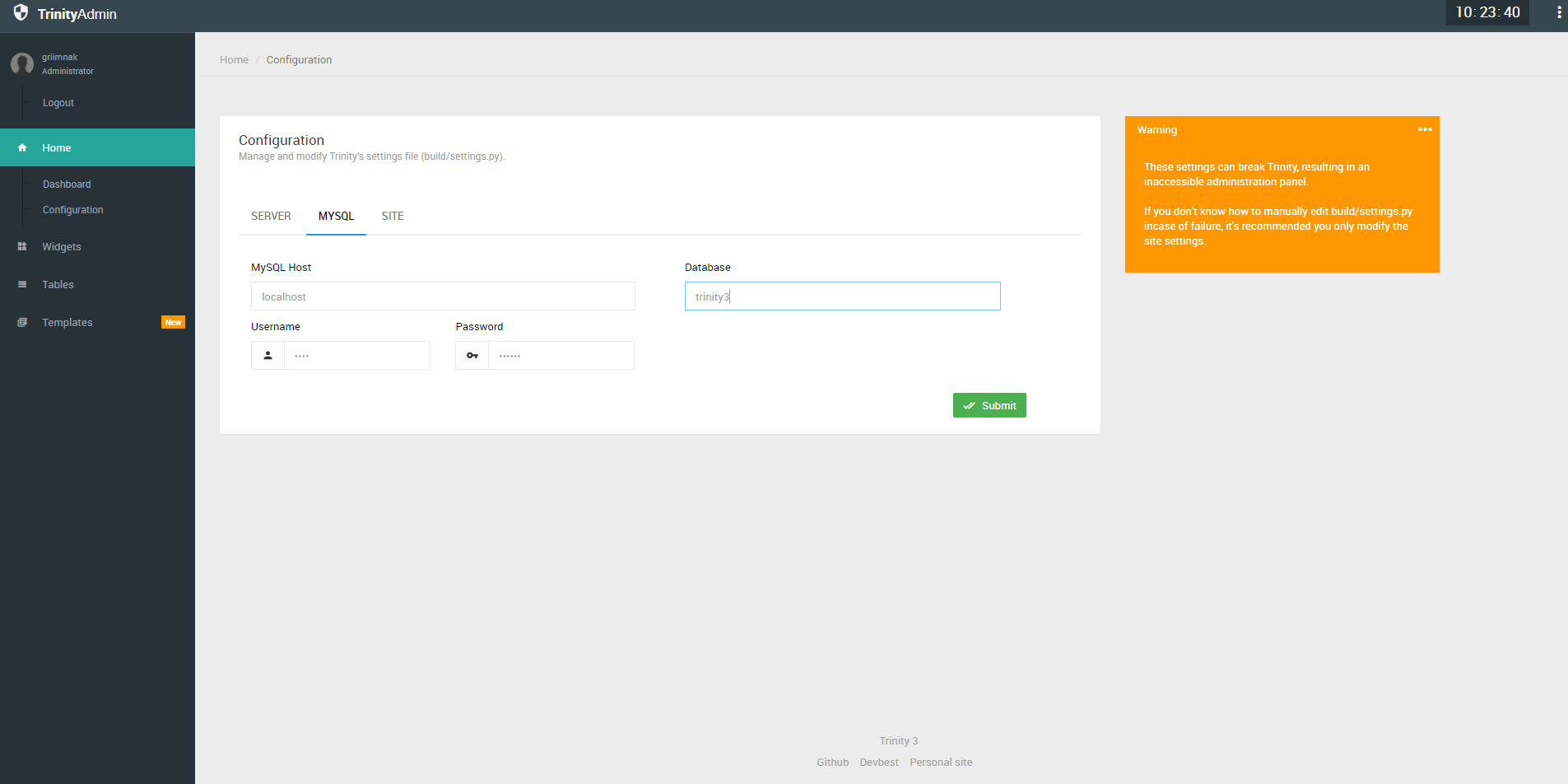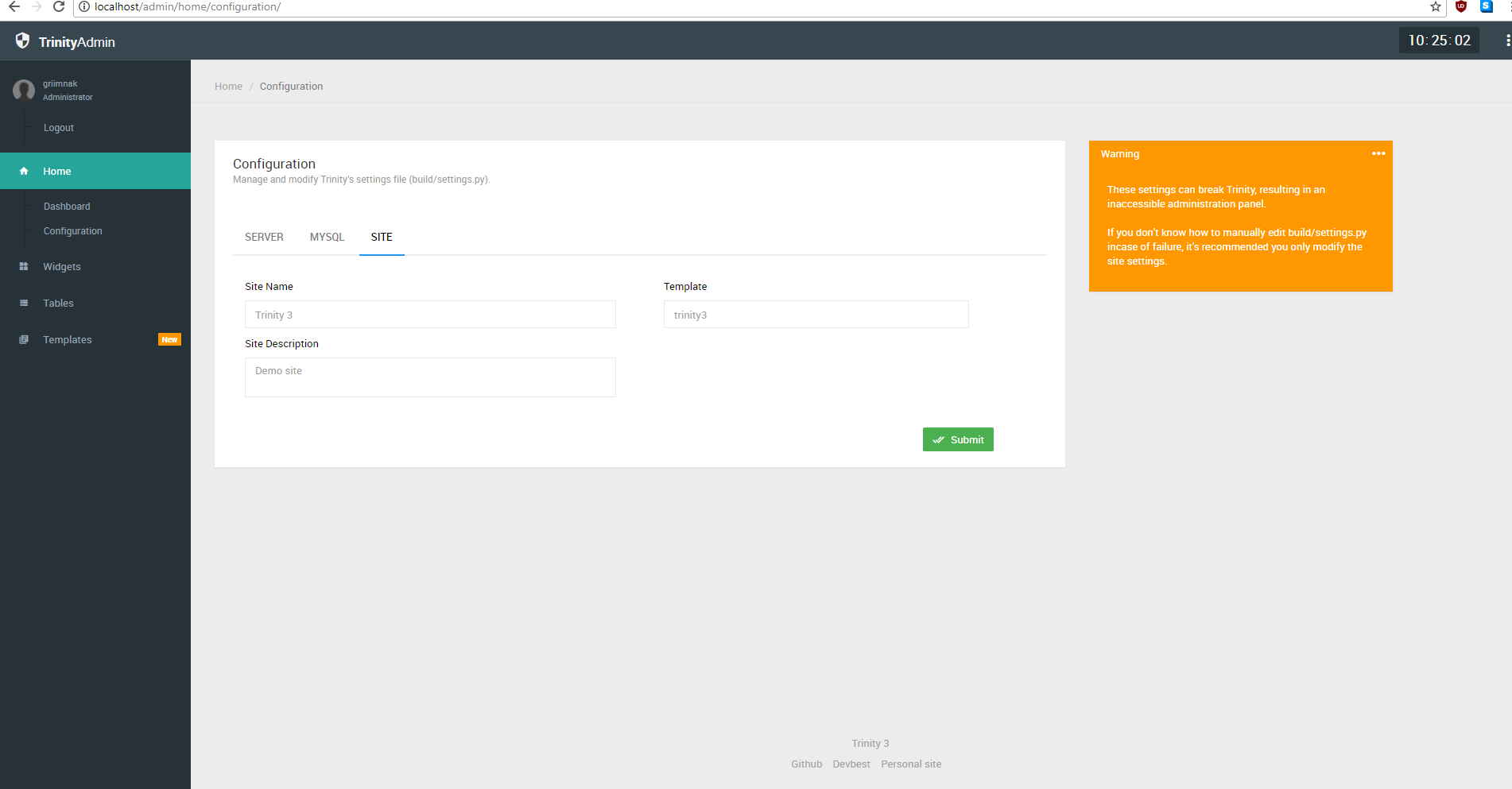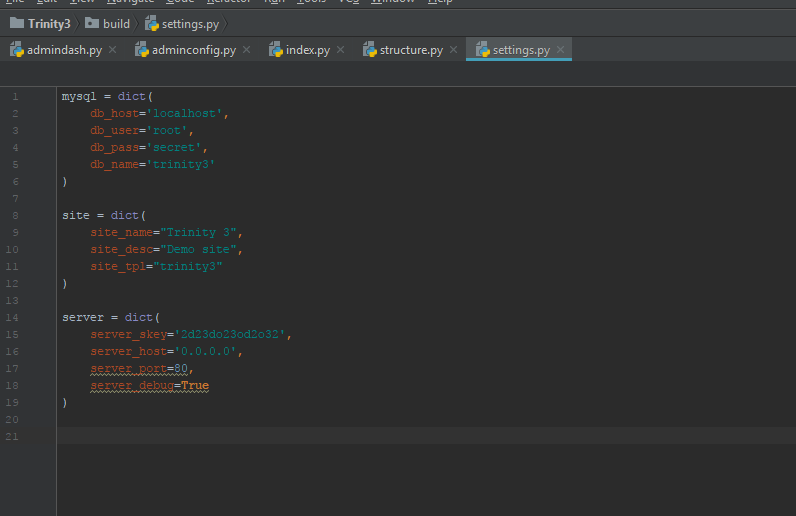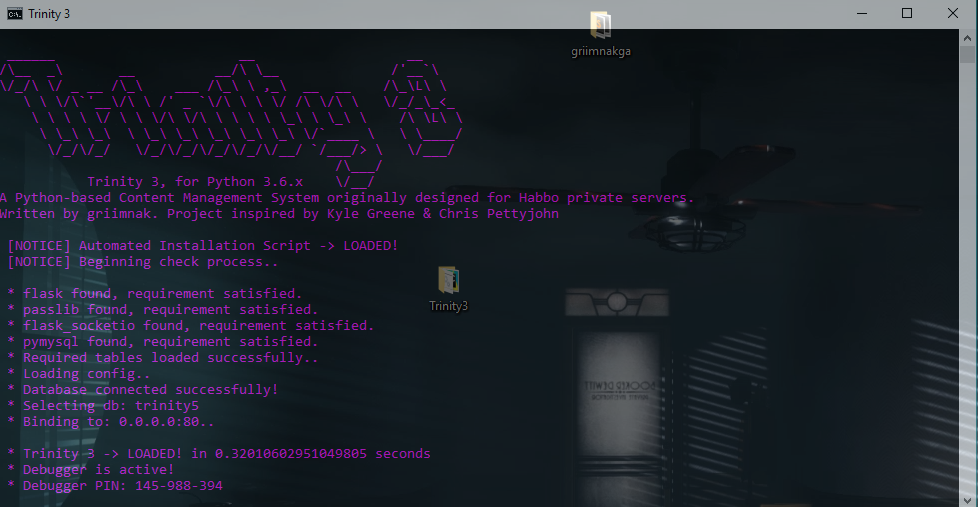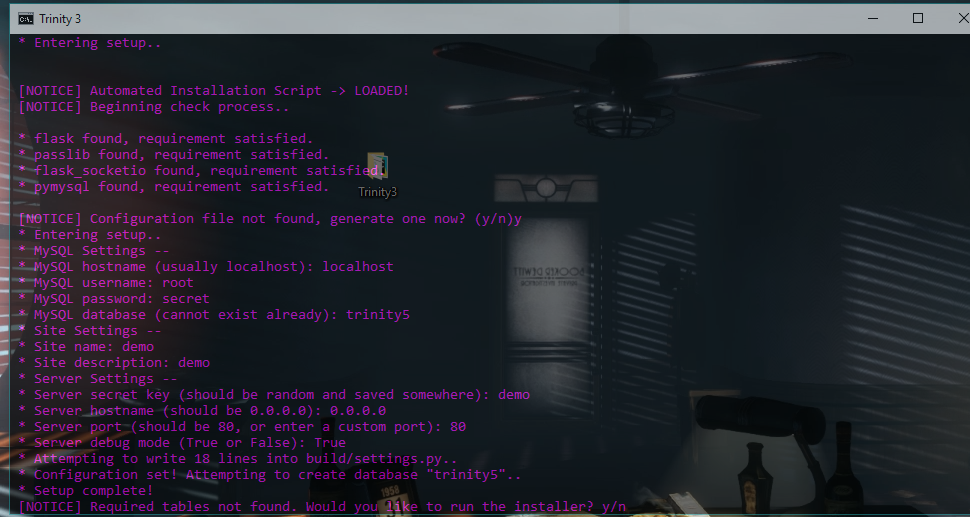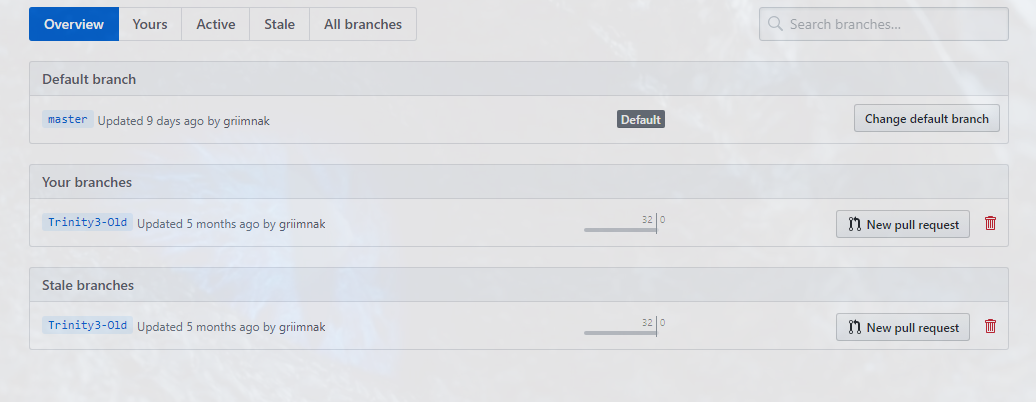griimnak
You're a slave to the money then you die
View the origin of this project's development:

Objective of Trinity 3
The objective of Trinity 3 is to completely annihilate its predecessor, Trinity, in both performance and code practice.
Simply said, Trinity 3 aims to offer a completely automated way of setting up a live mysql website with python easily under 5 minutes, without the need of the end user having to install third party modules! Instead, Trinity 3 automatically installs required modules via pip, and automatically creates required database tables. Just fill out settings.py and you're allset.
Technologies and Modules used
All required modules will be automatically installed by Trinity 3. (unlike its predecessor)
What makes Trinity 3 shine
Q: How does trinity go about templating?
A: Trinity uses flask's built in jinja2 templating system. Docs:
Q: How are passwords encrypted and decrypted?
A: I decided to go with passlib, you can learn more about it:
Q: Does trinity work across multiple platforms?
A: Yes, python itself is very cross platform, but i made sure to code the cms to work on linux and windows in specific.
Q: Have you experienced any bugs, crashes or memory leaks yet?
A: I've been using this very cms on
Showcase
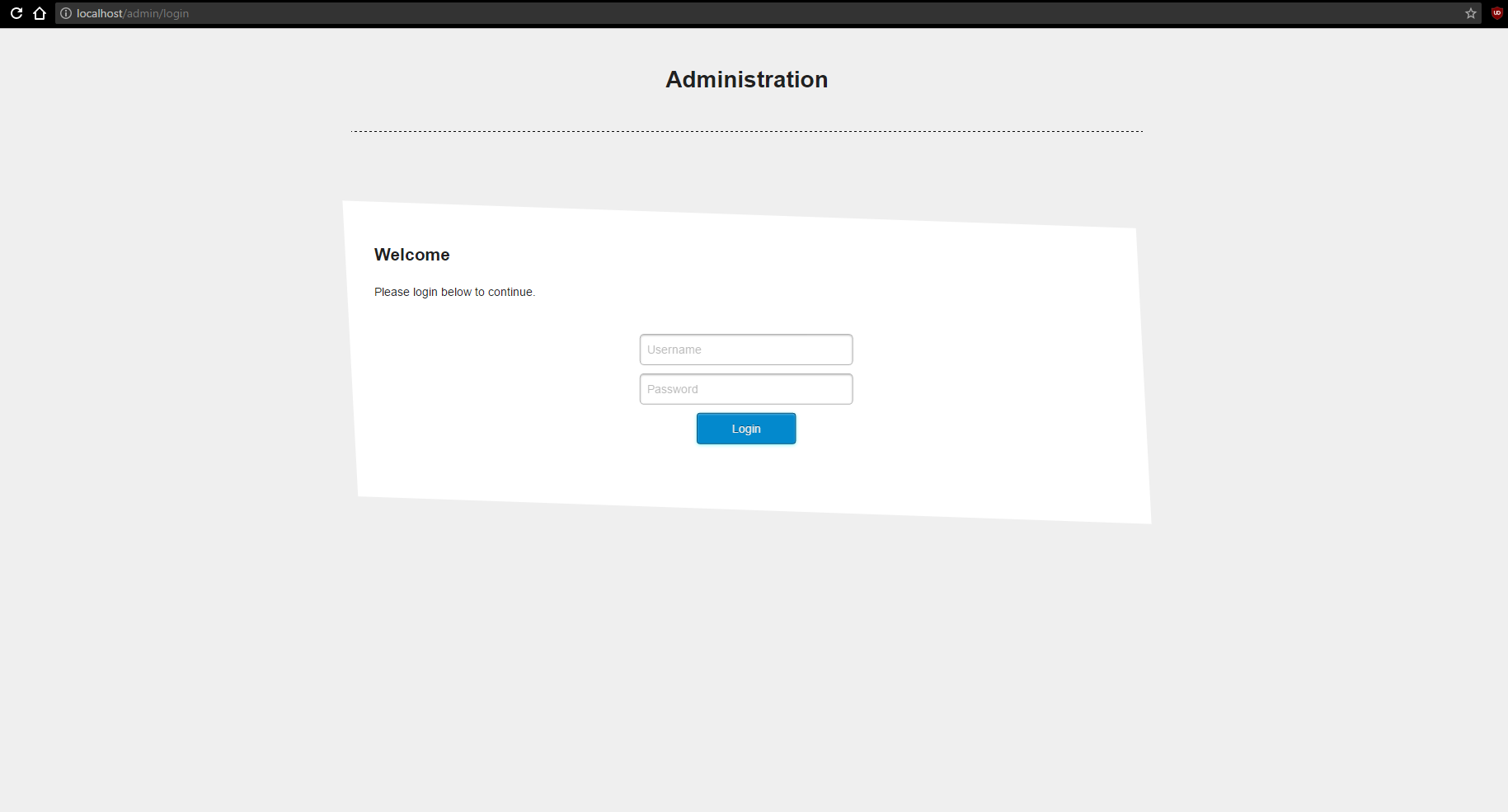
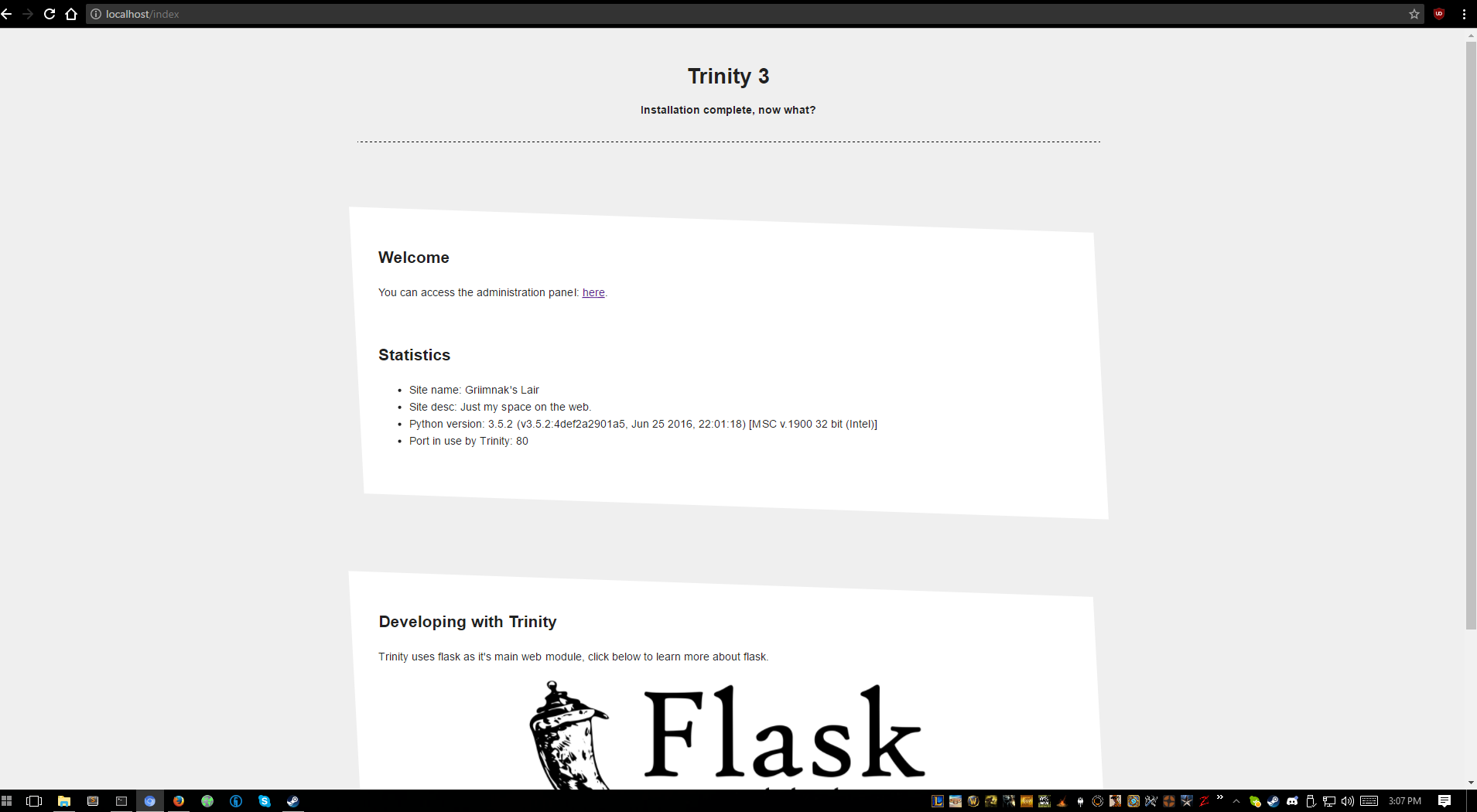
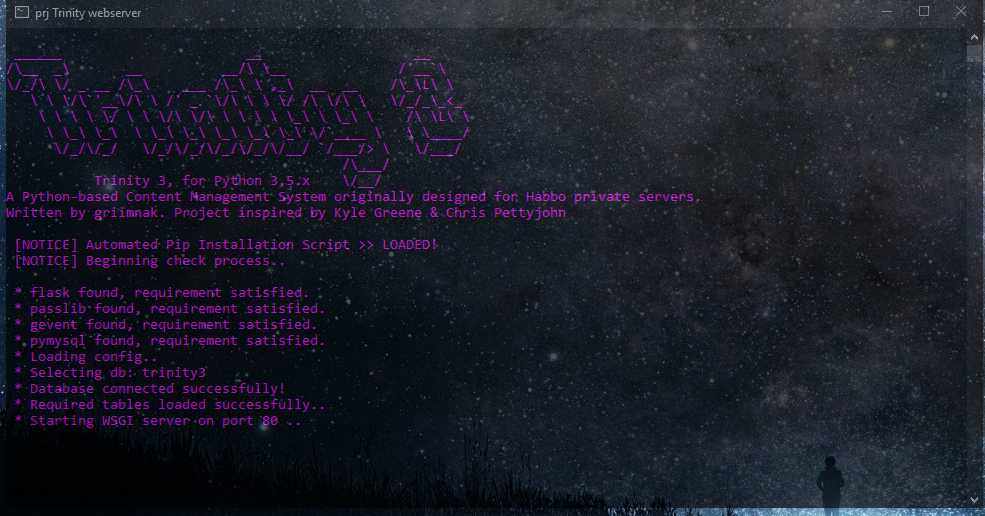
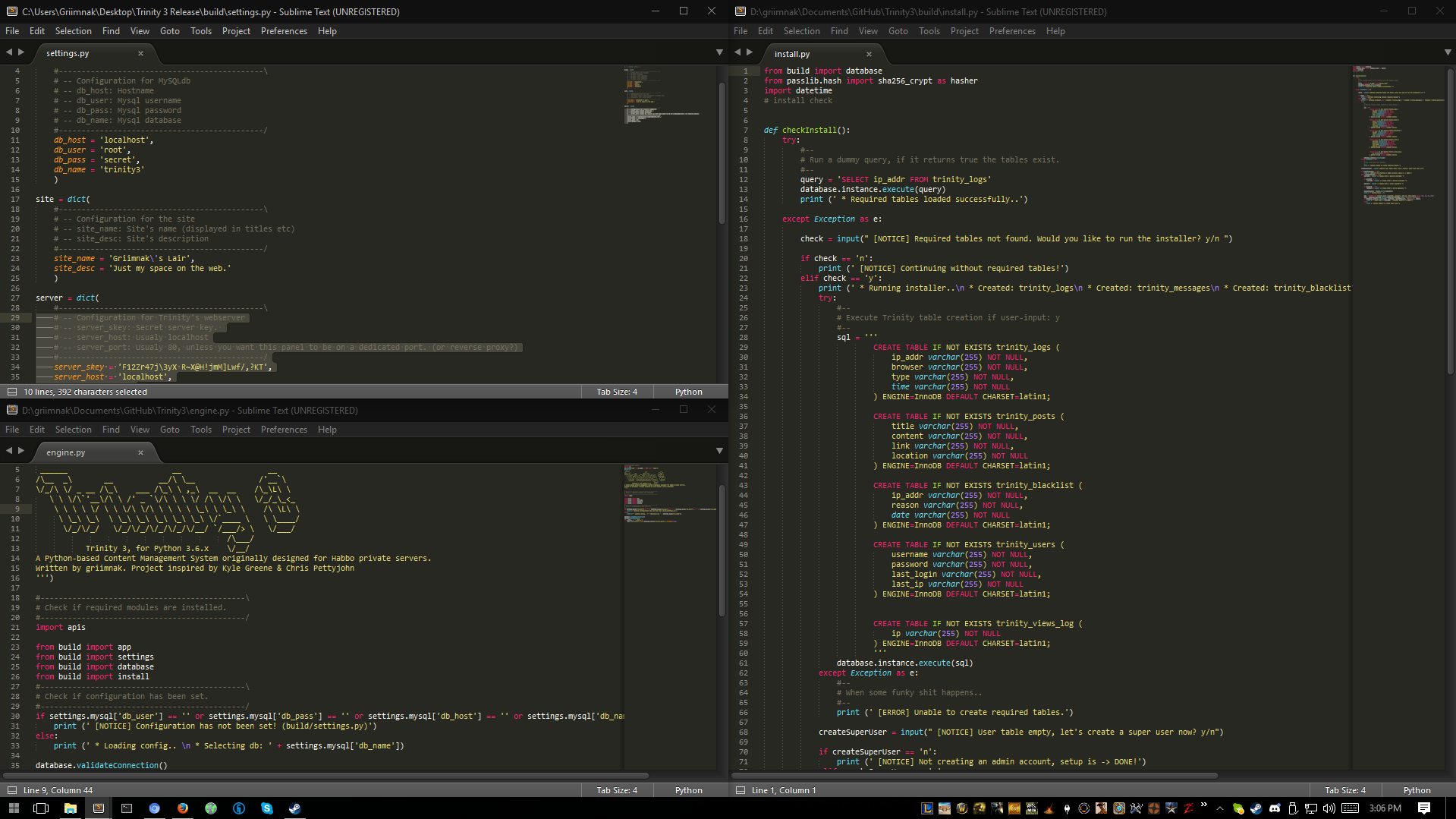
Thanks @Markshall for the barebone css template
Download
All of the code is hosted over at:
Report bugs if there's any, and i'll try to push a fix for it when i can.
Installation
Updates have been pushed to:
You must be registered for see links

Objective of Trinity 3
The objective of Trinity 3 is to completely annihilate its predecessor, Trinity, in both performance and code practice.
Simply said, Trinity 3 aims to offer a completely automated way of setting up a live mysql website with python easily under 5 minutes, without the need of the end user having to install third party modules! Instead, Trinity 3 automatically installs required modules via pip, and automatically creates required database tables. Just fill out settings.py and you're allset.
Technologies and Modules used
All required modules will be automatically installed by Trinity 3. (unlike its predecessor)
- Python 3.6.1 (General code base)
- Flask (Web module for python)
- PyMysql (Database module for python)
- Passlib (Password encryption & decryption module for python)
- Gevent (By default, trinity uses gevent as an wsgi. You can use any, though.)
What makes Trinity 3 shine
- The ability to automatically install required modules
- The ability to quickly render html templates
- The ability to automatically create all database tables
- The ability to run trinity on a custom port. (example
You must be registered for see links)
- Clean and easy mvc structuring.
- Easy to further develop upon.
Q: How does trinity go about templating?
A: Trinity uses flask's built in jinja2 templating system. Docs:
You must be registered for see links
Q: How are passwords encrypted and decrypted?
A: I decided to go with passlib, you can learn more about it:
You must be registered for see links
Q: Does trinity work across multiple platforms?
A: Yes, python itself is very cross platform, but i made sure to code the cms to work on linux and windows in specific.
Q: Have you experienced any bugs, crashes or memory leaks yet?
A: I've been using this very cms on
You must be registered for see links
me for awhile, no problems so far.Showcase




Thanks @Markshall for the barebone css template

Download
All of the code is hosted over at:
You must be registered for see links
Report bugs if there's any, and i'll try to push a fix for it when i can.
Installation
- Download Python 3.6.1 over at
You must be registered for see links
- Go into cmd, type "python" make sure it works otherwise you need to set it as a path variable (annoying)
You must be registered for see links
- Configure build/settings.py
- Run python trinity_server.py, everything from there on is automated.
- Reboot Trinity after setup is complete (bug)
Updates have been pushed to:
You must be registered for see links
Last edited:

